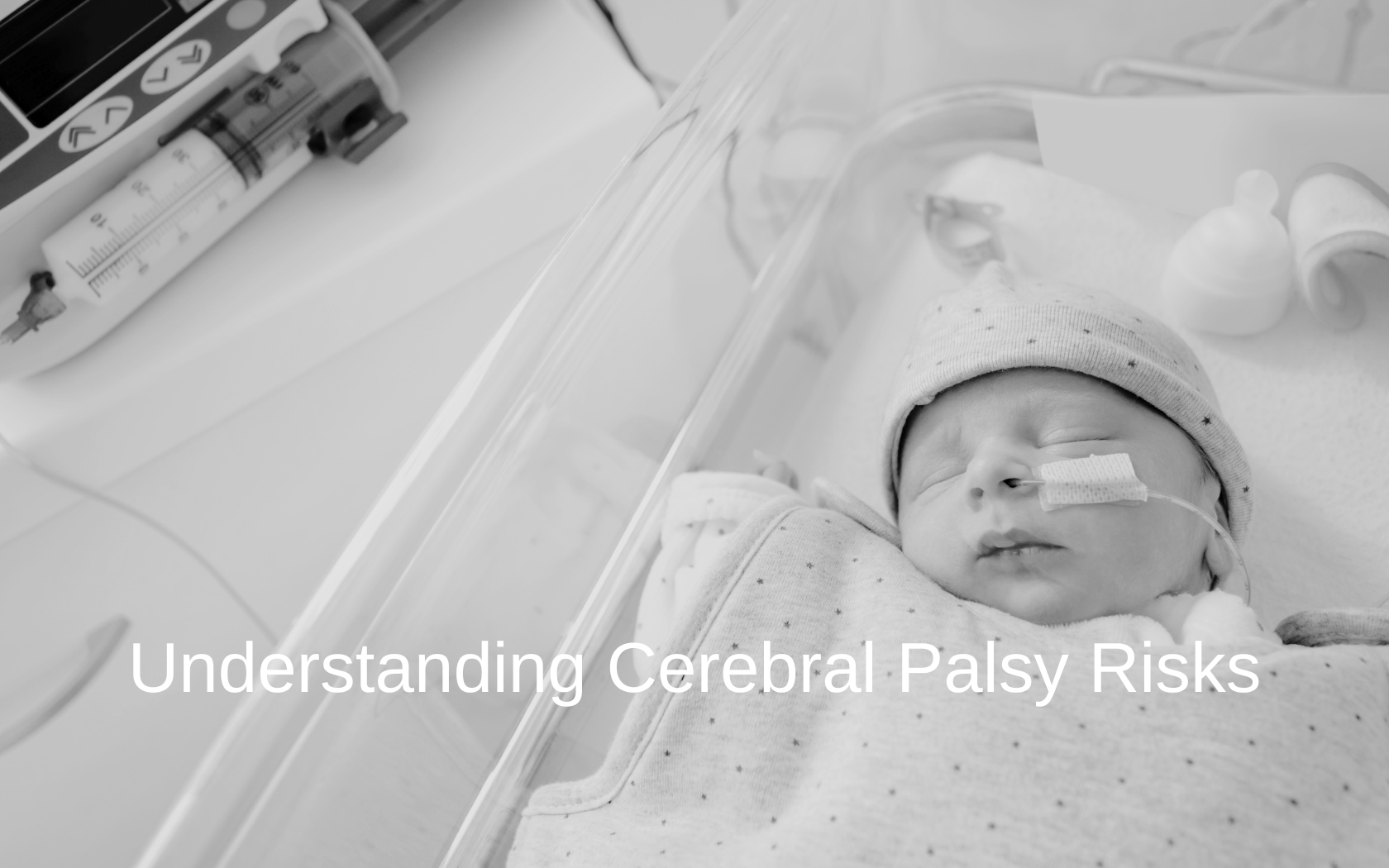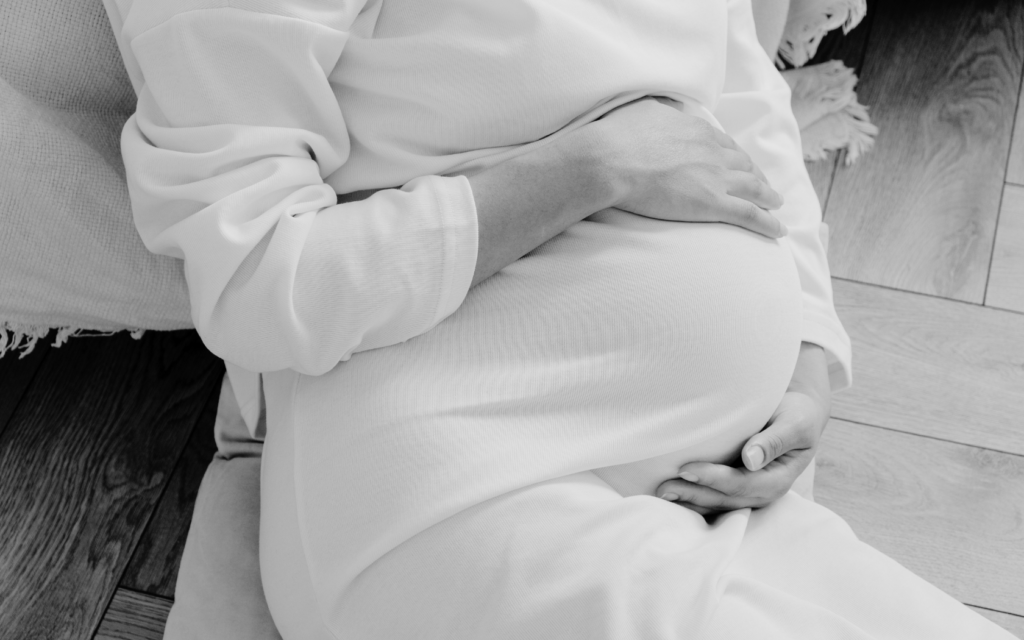Imagine having a foolproof “Do’s and Don’ts” list to ensure your baby is born in perfect health. This guide could help eliminate cerebral palsy risk factors, ensuring your newborn is not affected by CP.
But we know life doesn’t work that way. Life is full of surprises! Oftentimes, doctors themselves are surprised when a baby is diagnosed with CP. They might not be able to tell you why your baby has it.
While doctors often can’t determine the exact cause of CP, the medical community does agree that certain risk factors do make a baby more likely to have it. Find out what these factors are below.

What is Cerebral Palsy?
Cerebral palsy is a group of disorders affecting movement, muscle tone, and posture. It results from abnormalities or damage to a child’s brain while it’s still developing.
When a baby is born with CP, there may be a few noticeable symptoms, like limpness or slow reflexes. Or, CP might manifest a bit later, when the baby is older and has trouble crawling or walking.
Cerebral palsy is a lifelong condition with varying degrees of severity. It affects each person differently.
Cerebral Palsy Risk Factors
Several risk factors increase the likelihood of a child developing cerebral palsy. But not all of them can be controlled. While it’s impossible to eliminate all risks, being aware of the factors that may contribute to cerebral palsy can help you take proactive steps to manage them and seek the necessary support.
CP risk factors include:
Premature Birth and Low Birth Weight
Premature birth (before 37 weeks) and low birth weight are significant cerebral palsy risk factors. Preemies are more likely to have underdeveloped organs and a higher risk of brain damage, leading to cerebral palsy. Low birth weight, often linked with premature birth, also increases the likelihood of CP.
Multiple Births
Having twins, triplets, and other multiples is an amazing and rare phenomenon. But having multiples also raises the risk of cerebral palsy. The reason why is that multiple births often lead to premature delivery and low birth weight. Also, the death of a twin or triplet can increase cerebral palsy risk factors for the surviving babies.
Maternal Infections During Pregnancy
If you get sick during pregnancy, the illness may not affect just you. Severe infections like rubella, cytomegalovirus, or toxoplasmosis, can contribute to CP risk factors. These infections can cause inflammation in the fetal brain, leading to brain damage.
Birth Complications
Complications during labor and delivery can increase the risk of cerebral palsy because they might result in brain injury. These complications include:
- Prolonged labor
- Breech births (feet come through the womb first, instead of the head)
- Umbilical cord knots
- Oxygen deprivation (hypoxia)
Medical professionals must monitor and manage these complications to minimize risks.
Genetic Factors
Most cases of cerebral palsy aren’t inherited. But certain genetic disorders that affect brain development can be cerebral palsy risk factors.
Exposure to Toxins
In movies, toxin exposure turns people into superheroes. In real life, it can impair brain development and lead to CP. Pregnant women should avoid known harmful substances, like methylmercury or certain pesticides to protect their developing baby.
Maternal Health Conditions
Maternal health conditions, such as thyroid problems, intellectual disabilities, or seizures, can increase cerebral palsy risk factors. However, proper management of these conditions during pregnancy can help reduce the likelihood of CP.

External Cerebral Palsy Risk Factors
Now let’s discuss external risks. These are circumstances outside the mother or baby that could increase the risk of CP. One significant factor is rushing delivery and using instruments like vacuum extractors and forceps. Misusing these tools can lead to complications.
Poor care in hospitals also contributes to CP risk. This includes bad hospital hygiene, which can lead to infections. Also, many women, especially those living in remote areas or poor communities, don’t have access to adequate medical care. That can cause a delay in essential treatment they may need.

Legal Help for Negligence-Caused Cerebral Palsy
Expectant parents should discuss cerebral palsy risk factors with their doctors. This conversation needs to include all potential risks, even ones related to delivery methods and hospital care. By understanding these risks, you can make informed decisions about your baby.
If there’s any indication that your medical team mishandled risk factors for CP, and your child has this condition, seek legal help. You can consult a legal expert right now, at no cost, and find out whether you have grounds for a lawsuit. You may be able to secure compensation to cover your child’s care.
Cerebral Palsy Risk Factors FAQs
According to NYU Langone Health, babies with very low birth weight and who are born before 32 weeks are the most likely to have cerebral palsy. Babies who weigh less than 5.5 are considered as having low birth weight. The less a baby weighs, the higher the risk of developing cerebral palsy.
The most likely cause of cerebral palsy is damage to a baby’s developing brain that occurs sometime around birth. The most common cause of damage is a prenatal brain injury. Prenatal means before birth.
A baby’s brain can get injured while still in the womb if a mother gets an infection like rubella or cytomegalovirus. Those infections cause the mother’s body to make cytokines. Cytokines are proteins that cause inflammation. They can enter the baby’s bloodstream and harm the brain. Other causes of prenatal brain injury include exposure to toxins, genetic abnormalities, or lack of blood supply and oxygen to the fetal brain.
Cerebral palsy isn’t always unavoidable. But the best way to avoid it is to take care of your health if you’re an expectant mother. You should get regular prenatal check-ups so doctors can check the baby’s health and development. Eating a balanced diet, avoiding alcohol and drugs, and getting vaccinated against infections like rubella can protect the baby.
Also, if you have a chronic condition like diabetes, you should tell your doctor and ask for advice on how to manage it. After birth, ensure the baby gets proper care. If the baby has jaundice, get treatment right away. Avoid infections and head injuries.




